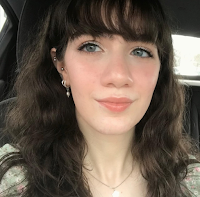Ayah Atmani, Verrazzano Class of 2024, completed major in Medical Laboratory Science

This research paper
is a compilation of experiences I had during my clinical rotations, honing on
the most commonly performed tests, as well as the principles and methodology in
the lab using standard operating procedures and research articles. By
understanding the mechanisms of these tests, as well as explaining the purpose
of each field; hematology, urinalysis, blood bank, chemistry, and microbiology,
we can better understand the complexity of patient testing and appreciate the
work that these laboratory professionals do. My paper specifically delves into
testing principles, methodologies, reference ranges, automation, and forms of
quality control used to obtain reliable and efficient results.
At the end of each
section, I also reflect on my personal experience in each field. I began my
capstone at the start of my clinical rotations and documented the tests
encountered in each field, as well as providing a brief overview of the purpose
of each field. The process of creating my capstone involved incredible time
management skills as well as a lot of visualization for the structure of the
paper I wanted to create in order to have a format for people of all ages to
understand. My mentor, Professor Paez, has been an invaluable guide throughout
this journey. Her dedication to her students and commitment to our success in
our careers are truly commendable. I am grateful for her unwavering support and
guidance.
I wanted to pursue
Departmental Honors Paper in order to solidify, record, and expand my knowledge
about each designated field that I have clinical rotations in. By understanding
the principles behind the testing being done, I have a better understanding of
the work that I am doing in a clinical laboratory setting which is used in the
diagnosis and treatment of a patient. My goal for this paper is to expand many
people’s understanding of the medical world; how every professional, from
specimen collection to the operation of a patient in a surgical table, matters.



